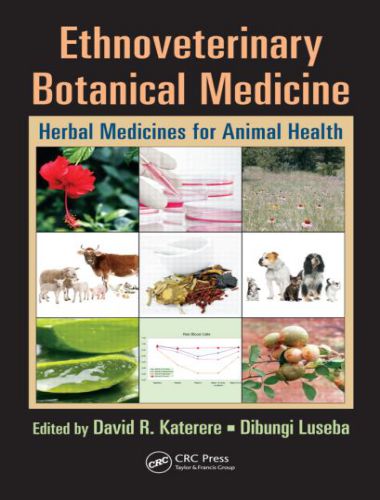Ethnoveterinary Botanical Medicine – Herbal Medicines for Animal Health,Despite the undoubted success of a scientific approach to pharmaceuticals, the last few decades have witnessed a spectacular rise in interest in herbal medicinal products.
Ethnoveterinary Botanical Medicine – Herbal Medicines for Animal Health

This general interest has been followed by increasing scientific and commercial attention that led to the coining of the term ethnopharmacology to describe the scientific discipline investigating the use of these products. Presenting detailed information from all regions of the world, Ethnoveterinary Botanical Medicine provides techniques to evaluate the efficacy of plants used in animal health care and addresses the challenges faced by researchers and practitioners in the field.
This book features a multidisciplinary approach to examining the role of herbal medicines in companion and domestic animals and the scientific underpinnings of ethnoveterinary practice. The text also covers matters relating to access benefit sharing, the Convention on Biological Diversity (CBD), intellectual property, and the skills required to navigate the minefield of bio prospecting.
The editors have collated information not often found in the English literature from China, Southeast Asia, francophone Africa and South America. They also explore the emerging use of herbals for pets with a case study from the European Union, highlighting this important area which will spur the growth in ethnoveterinary research due to its commercial potential.
Although many references cover ethnoveterinary medicine in some form or another, none give it the intense scrutiny and scientific input found in this book. With chapters on biological assays, efficacy testing, and phytochemistry, the book presents hard scientific information in accessible and readable language. The editors have gathered a panel of veterinary clinicians, animal scientists, pharmacists, chemists and ethnobotanists who have years of experience working with farmers and pastoralists, making this book quite possibly the first detailed compendium on the plants used in animal health care in all regions of the world.
The authorship is truly international making this the first global-scale compilation of traditional and modern knowledge of the use of plants for animal health. It is a “must -have” for all individuals serious about ethnopharmacology, veterinarians working with the studied populations, and anthropologists interested in getting a better idea about traditional approaches to animal care.
A continuing theme in much of this book is the necessity to establish both safety and efficacy of herbal remedies, rather than simply propagate folklore. This book brings together and summarizes a very large body of research and observation; approximately 1400 (mostly modern) references are cited in 17 chapters. It reads like the proceedings of a symposium, but in fact it is the outcome of a special effort by the editors to enlist the services of many experts worldwide. It’s not all hard science. A good bit of space is devoted to local beliefs in various parts of the world, and to the Chinese philosophy of yin-yang, equally applicable to humans and animals. The book concludes with an extensive index.
| PDF Size: 10 MB | eBook Download |
Password: pdflibrary.net
